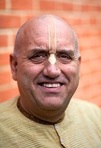What is Power?
‘Pause for Thought’ broadcast on BBC Radio 2 on April 12
Power is usually seen as a means of control, but in the wrong hands it all too often goes out of control. Jimi Hendrix, that great peacenik of the 60s, said that when the power of love overcomes the love of power the world will know peace. Carl Jung also said that one was the shadow of the other, that where power rules love is lacking, and where love prevails there was no real need of power.
That seems to be true. I recall my days many years ago at a rather strict boys’ school, where different styles of class control were in evidence. Some teachers ruled with an iron hand which, in those pre health and safety days, occasionally connected with a recalcitrant ear. Of course, the fear they engendered largely served its purpose and kept us in our place. But in a passive aggressive manner, if only for the sake of our ears, we were always looking for opportunities to give them a hard time. On the other hand, those teachers who showed genuine affection for the students were treated with genuine respect.
The Mahabharata, a great moral teaching from Ancient India, says that power is actually meant to be a part of love; that it is meant only for protecting others, in particular those most in need of protection. It should never be used for any selfish purpose. This makes sense when seen from a spiritual perspective. After all, from where do we get our power? None of us are independently powerful – our power can be taken from us at any time, no matter how much we may have. Our strength, capability and very life itself are not under our control, what to speak of any position of any external power we may hold. There is a superior power above us, which is God.
And God’s power, according to the Mahabharata, is the power of love in action, directing us back to him where we will experience his love in full. So let’s use whatever power we have lovingly in his divine service rather than our own. I think then we will find the peace that Jimi mentioned.



